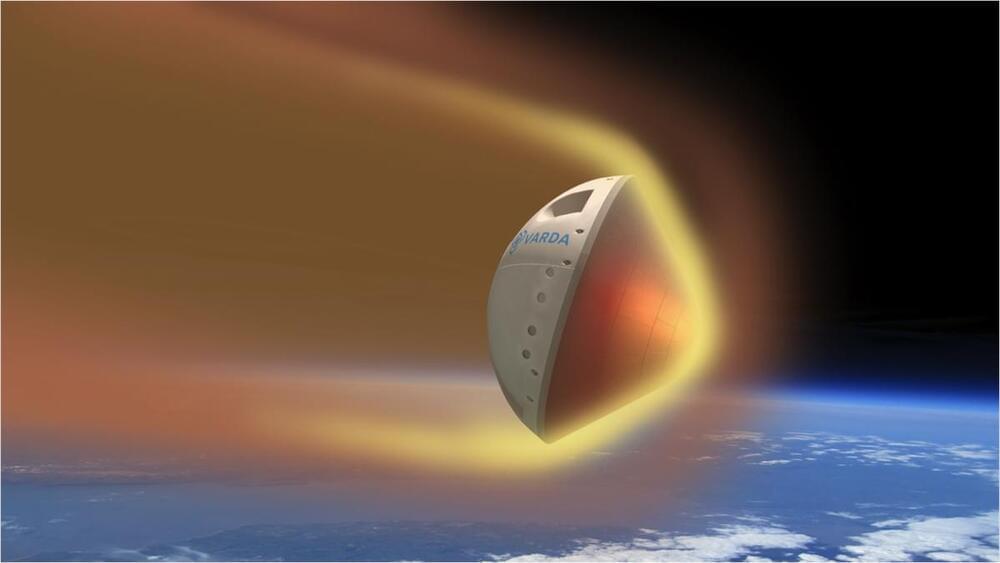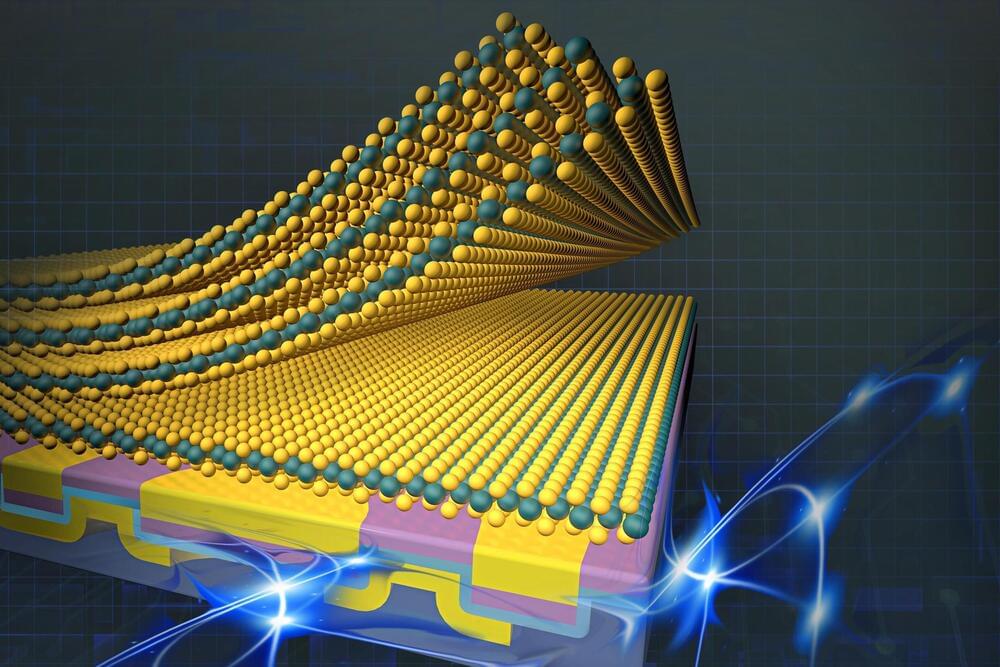Yuri Gagarin was the first human in space when he orbited Earth in 1961 aboard the Vostok 1 space capsule.
Varda Space Industries’ W-1 capsule landed in Utah Wednesday (Feb. 21) after nearly eight months in orbit.
How to Compare Proteins
Posted in biological
The motions within the molecule provide a new way to compare the structures and functions of similar proteins.
Proteins play a central role in nearly every biological process, and they often change shape as they function. Over the past decade, a research team has developed a method of analysis that can help make sense of the available atomic-scale structural data and reveal the key physical distortions that underlie protein functions. Now the team has shown that the technique provides a consistent way of comparing proteins from different species, demonstrating similar structural changes in many of them [1]. The researchers believe that the technique will help biologists better understand the cross-species variations among proteins.
Proteins are linear chains of amino acids that fold up into specific three-dimensional shapes. Although there are lots of atomic-scale data on the structural changes that protein molecules execute as they function, researchers have had few quantitative methods to extract insights from these data, says biophysicist Pablo Sartori of the Gulbenkian Institute of Science in Portugal. One challenge, he says, is the arbitrary choice one makes when comparing two similar protein structures, such as the structures of a protein in two different conformations. “If you align region A of the protein, then region B shows displacement. If you align region B, then region A shows displacement. If you align the average, then both are displaced a bit.” Another problem is that the relative displacement is often not the quantity that best reflects the structural changes associated with protein function.
The winners of the third annual “Gallery of Soft Matter” competition included posters portraying robotic leaves and cannibalizing droplets and a video with what might be Steamboat Willie’s first appearance at the APS March Meeting.
The perplexing phenomenon of homochirality in life, where biomolecules exist in only one of two mirror-image forms, remains unexplained despite historical attention from scientific figures like Pasteur, Lord Kelvin, and Pierre Curie. Recent research suggests the combination of electric and magnetic fields might influence this preference through experiments showing enantioselective effects on chiral molecules interacting with magnetized surfaces, offering indirect evidence towards understanding this mystery.
The phenomenon known as homochirality of life, which refers to the exclusive presence of biomolecules in one of their two possible mirror-image configurations within living organisms, has intrigued several prominent figures in science. This includes Louis Pasteur, who first identified molecular chirality, William Thomson (also known as Lord Kelvin), and Pierre Curie, a Nobel Laureate.
A conclusive explanation is still lacking, as both forms have, for instance, the same chemical stability and do not differ from each other in their physicochemical properties. The hypothesis, however, that the interplay between electric and magnetic fields could explain the preference for one or the other mirror-image form of a molecule – so-called enantiomers – emerged early on.
For over ten years, physicists have been able to pinpoint the exact positions of individual atoms with a precision finer than one-thousandth of a millimeter using a specialized microscope. However, this method has so far only provided the x and y coordinates. Information on the vertical position of the atom – i.e., the distance between the atom and the microscope objective – is lacking.
A new method has now been developed that can determine all three spatial coordinates of an atom with one single image. This method – developed by the University of Bonn and University of Bristol – is based on an ingenious physical principle. The study was recently published in the specialist journal Physical Review A.
Researchers have discovered significant amounts of water vapor in the disc around the young star HL Tauri, suggesting the presence of water where planets are forming. This breakthrough, enabled by the ALMA telescope in Chile, marks the first time astronomers have been able to quantify water vapor in a cool, stable disc conducive to planet formation. The findings could have profound implications for our understanding of how planets, particularly those capable of hosting life, are formed. (Artist’s concept.) Credit: SciTechDaily.com.
Researchers have found water vapor in the disc around a young star exactly where planets may be forming.
Water is a key ingredient for life on Earth and is also thought to play a significant role in planet formation, yet, until now, astronomers have never been able to map how water is distributed in a stable, cool disc — the type of disc that offers the most favorable conditions for planets to form around stars.
Astronomers can use supercomputers to simulate the formation of galaxies from the Big Bang 13.8 billion years ago to the present day. But there are a number of sources of error. An international research team, led by researchers in Lund, has spent a hundred million computer hours over eight years trying to correct these.
The last decade has seen major advances in computer simulations that can realistically calculate how galaxies form. These cosmological simulations are crucial to our understanding of where galaxies, stars, and planets come from. However, the predictions from such models are affected by limitations in the resolution of the simulations, as well as assumptions about a number of factors, such as how stars live and die and the evolution of the interstellar medium.
Collaborative Efforts Enhance Accuracy
“Opposites charges attract; like charges repel” is a fundamental principle of basic physics. However, a new study from Oxford University, recently published in the journal Nature Nanotechnology, has demonstrated that similarly charged particles in solution can, in fact, attract each other over long distances.
Just as surprisingly, the team found that the effect is different for positively and negatively charged particles, depending on the solvent.
Besides overturning long-held beliefs, these results have immediate implications for a range of processes that involve interparticle and intermolecular interactions across various length-scales, including self-assembly, crystallization, and phase separation.
MIT ’s breakthrough in integrating 2D materials into devices paves the way for next-generation devices with unique optical and electronic properties.
Two-dimensional materials, which are only a few atoms thick, can exhibit some incredible properties, such as the ability to carry electric charge extremely efficiently, which could boost the performance of next-generation electronic devices.
But integrating 2D materials into devices and systems like computer chips is notoriously difficult. These ultrathin structures can be damaged by conventional fabrication techniques, which often rely on the use of chemicals, high temperatures, or destructive processes like etching.








